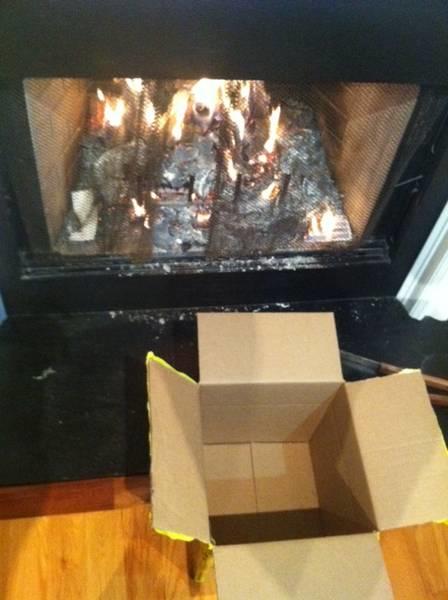
Section Branding
Header Content
Venezuelans In Georgia Burn Ballots
Primary Content

In what’s poised to be one of Venezuela’s most heated elections in history, a young governor named Henrique Capriles will go up against the ailing President Hugo Chavez in October.
This week, Chavez criticized the opposition for burning election records to counter fears of government backlash. A ballot burning recently took place in Cumming north of Atlanta, and it is bringing to light the voter registration issues facing many of the estimated 3,000 Venezuelans living legally in Georgia.
Anyone walking into this house in Cumming might assume a dinner party was underway. Wine and hors d’oeuvres have just been served, guests are spirited in, greeted warmly, and a fire is crackling to life in the fireplace.
But the fire burning here is ignited by fear not fiesta. These are the government-appointed gatekeepers of the absentee ballots and list of voters from the Venezuelan primary election held earlier this month in Duluth. At stake? Choosing the candidate to run against President Hugo Chavez in October’s general election.
“We are in the duty of protecting the ones who trusted us,” says Maria Mercedes Gutierrez.
A cardboard box, taped shut on all sides, holds the confidential list of voters and the ballots cast. Maria Mercedes Gutierrez of Participacion Venezolana en Atlanta oversaw the Duluth primary. Kneeling in front of the fire, she cuts the box open.
The group begins burning ballots and electoral lists. They are vowing to keep voters’ identities secret because Venezuela has a history of punishing opposition voters.
Back in 2004, after a failed recall vote against President Hugo Chavez, the list of those who petitioned for the election was leaked and circulated.
“Their names were on there, having signed, and therefore indicating they in opposition to the government,” says Jennifer McCoy, Director of the Carter Center's Americas Program and Professor of political science at Georgia State University. She was invited to observe the primaries in Venezuela and spoke to us while driving through Caracas. Dr. McCoy explains:
“Many of the people on that list alleged that they were then punished, either losing a government job, not getting a passport, or not being able to receive certain benefits, so the fear, was that if people were seen as having voted in this primary election in 2012, a similar list might be prepared and recrimination, visited against them.”
A member of the election group says: “If we don’t destroy these notebooks, then what might happen, is that any of us could not travel to Venezuela to visit our families. There is danger to us as well.”
As unconventional as it might seem, Venezuelan procedure calls for the ballots and the electoral books listing voters to be destroyed within 48 hours of votes being tallied.
But hours before this ballot burning began, the Venezuelan Supreme Court ruled that the documents must not be destroyed. A candidate from a smaller mayoral race disputed the count in his village, and the Court ruled that documents from all of the primary races with voters names must be turned over to Venezuela’s National Electoral Council.
But, vowing to protect voter confidentiality, this group lit the fire anyway.
We are here exercising democracy, this is what we’re defending here, we’re defending democracy, we’re defending our constitution,” says Clementina Hiteshew.
They say they are willing to suffer whatever consequences may come.
Another obstacle is proving to be an even bigger challenge a fear of voting for the opposition. Many southeastern Venezuelans can’t vote at all. This group had to turn away nearly one thousand voters at the primary because they couldn’t register to vote in time. In order to vote in a Venezuelan election, in the Southeast, these legal immigrants- many who hold dual citizenship, must register to vote in person at the Miami consulate.
But last month, Chavez shut the consulate down after the US expelled a Venezuelan diplomat. That cut off registration access for thousands of prospective opposition voters.
Now, less than 6 weeks remain before the deadline to register for October’s general election. Venezuelans like Tomas Lefkovitz don’t want to see the hopes of voters seeking democracy burned to ashes like the documents smoldering in the fireplace:
“If God willing, we will be a democratic country where everybody’s voice is heard.”
Tags: Hugo Chavez, Venezuelan Voters, parker wallace
